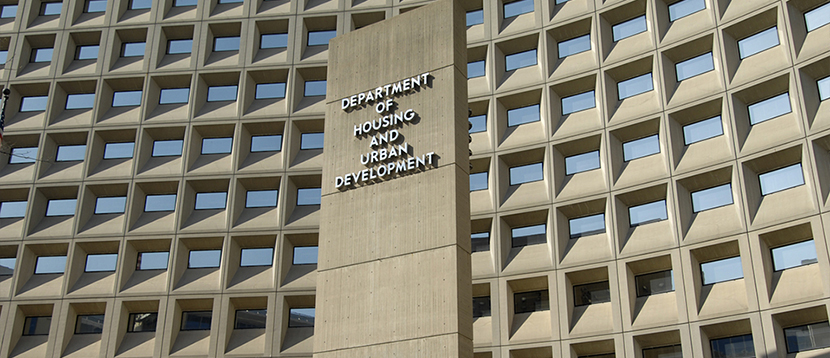
MBA, Trade Groups Ask HUD for ‘Consistent’ Re-Codification of Disparate Impact Proposed Rule

The Mortgage Bankers Association, the American Bankers Association, the Consumer Bankers Association and the Independent Community Bankers of America asked HUD to ensure it codifies a standard of disparate impact that is fully consistent with Supreme Court precedent and implements the Fair Housing Act’s requirements with a clear legal framework to address unlawful discrimination.
In 2013, HUD issued a disparate-impact rule asserting liability under the Fair Housing Act could be established by a showing that a neutral policy or practice either has a disparate impact on a protected group or creates, perpetuates or increases segregation, even if such a policy or practice was not adopted for a discriminatory purpose.
Two years later, the United States Supreme Court issued a decision in Texas Department of Housing & Community Affairs vs. Inclusive Communities Project Inc., recognizing disparate-impact liability under the Fair Housing Act and articulating legal requirements applicable to such claims.
In 2020, after reviewing comments submitted in connection with a 2018 advance notice of proposed rulemaking and a 2019 proposed rule, HUD amended the 2013 Rule in response to Inclusive Communities to bring the disparate-impact standard into alignment with the binding Supreme Court precedent established in that case, which did not exist in 2013 when HUD first promulgated its regulation.
In its 2021 Proposed Rule (https://www.federalregister.gov/documents/2021/06/25/2021-13240/reinstatement-of-huds-discriminatory-effects-standard), HUD is proposing to recodify its previously promulgated rule, Implementation of the Fair Housing Act’s Discriminatory Effects Standard.” In its proposed rule, HUD noted the 2013 Rule was consistent with Inclusive Communities.
“The vast majority of courts that considered this issue subsequent to Inclusive Communities also found that the 2013 Rule was consistent with Inclusive Communities,” HUD said. “HUD thus proposes this rule because it believes the 2013 Rule accurately reflects the discriminatory effects framework under the Act, whereas the 2020 Rule does not.”
However, in their Aug. 24 letter, MBA, ABA, CBA and ICBA warned re-codifying the 2013 Rule would reinstate a standard that predates and is inconsistent with binding Supreme Court precedent.
“Inclusive Communities is the law of the land, and all stakeholders need a durable disparate-impact rule that is aligned with the decision,” the letter said. “Each new administration’s initiation of rule changes creates uncertainty for industry members and fair housing advocates alike, and undermines the fundamental statutory goal of expanding credit opportunity and availability.”
The letter identified seven “areas of tension” between Inclusive Communities and the 2021 Proposed Rule the trade groups said should be resolved by including standards in any new rule “that are consistent with the Supreme Court’s framework.”
Those areas are:
- The disparate-impact standard endorsed by Inclusive Communities applies to Fair Housing Act cases.
- The Supreme Court held that businesses must be permitted to make profit-related decisions and to consider market factors.
- The Supreme Court requires Fair Housing Act plaintiffs to demonstrate “robust causality” and “direct” proximate cause.
- Inclusive Communities held that claims based on third-party policies limiting a defendant’s discretion should be dismissed.
- Disparate impact only mandates the removal of artificial, arbitrary, and unnecessary barriers.
- Inclusive Communities addressed pleading-stage requirements and standards.
- Remedies in disparate-impact cases should focus on the elimination of the offending practice.
“Inclusive Communities was not in place when HUD originally promulgated the disparate impact rule in 2013,” the letter said. “The Department’s disparate-impact regulation must accurately reflect binding Supreme Court precedent, including but not limited to the holdings described above, and re-codifying the 2013 Rule would be inconsistent with Inclusive Communities.”
